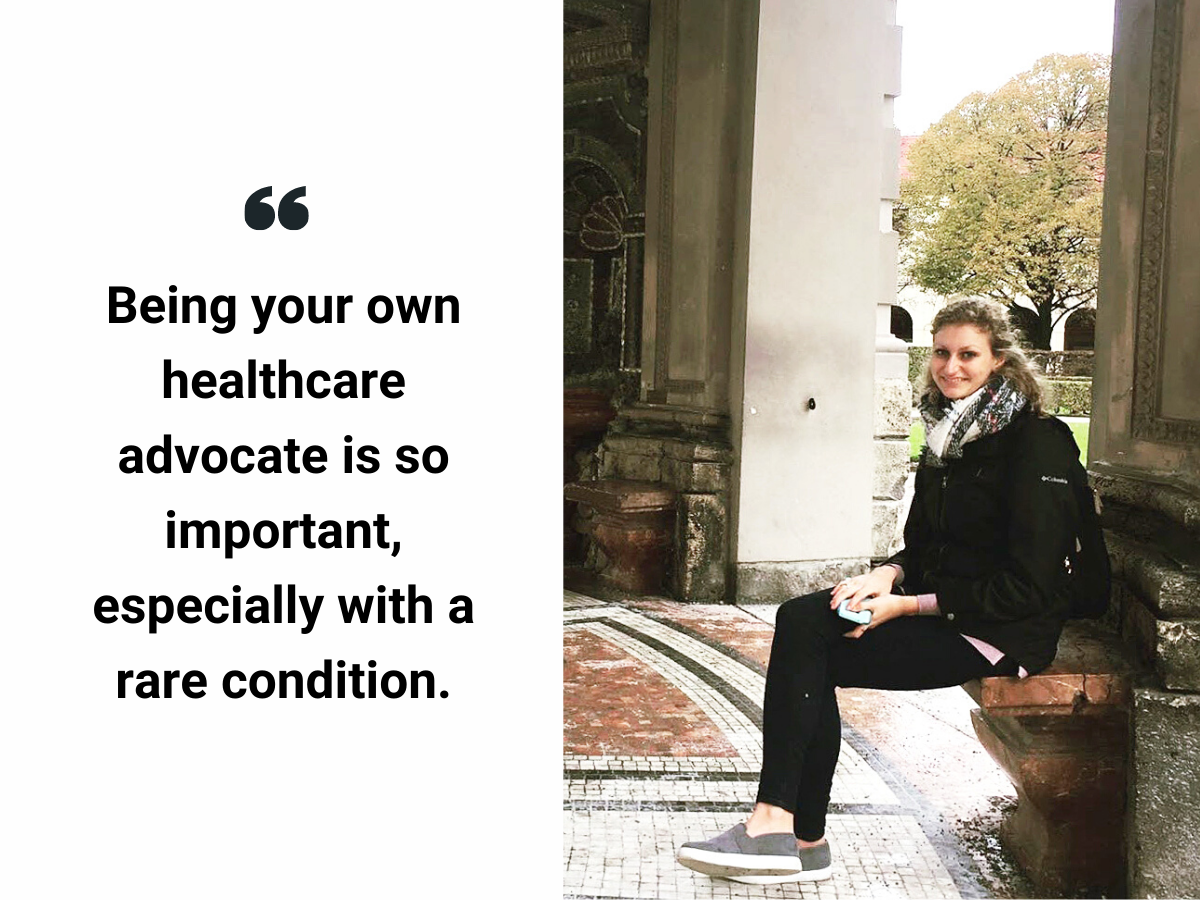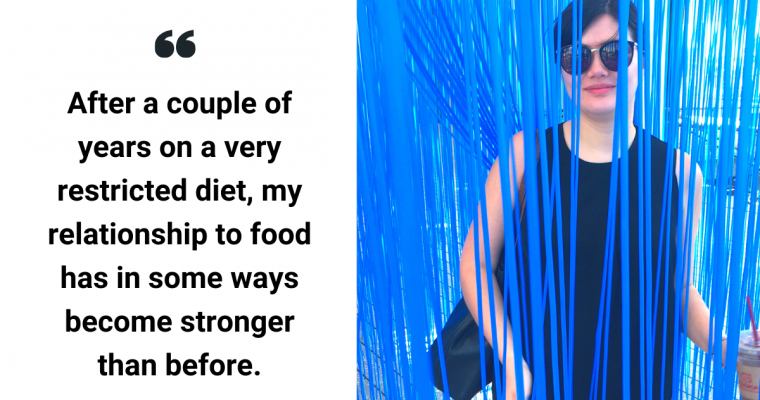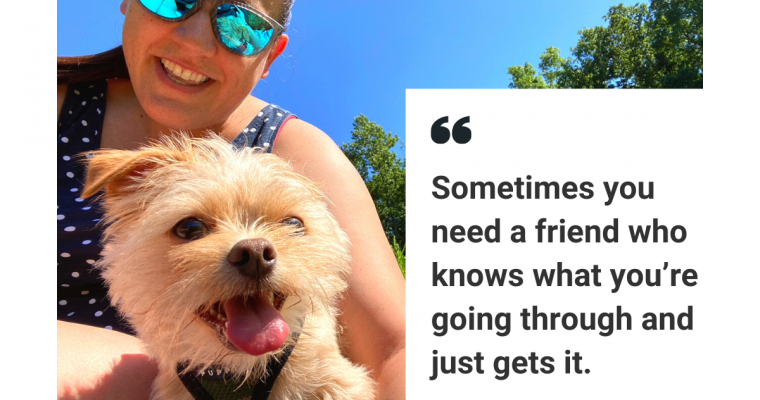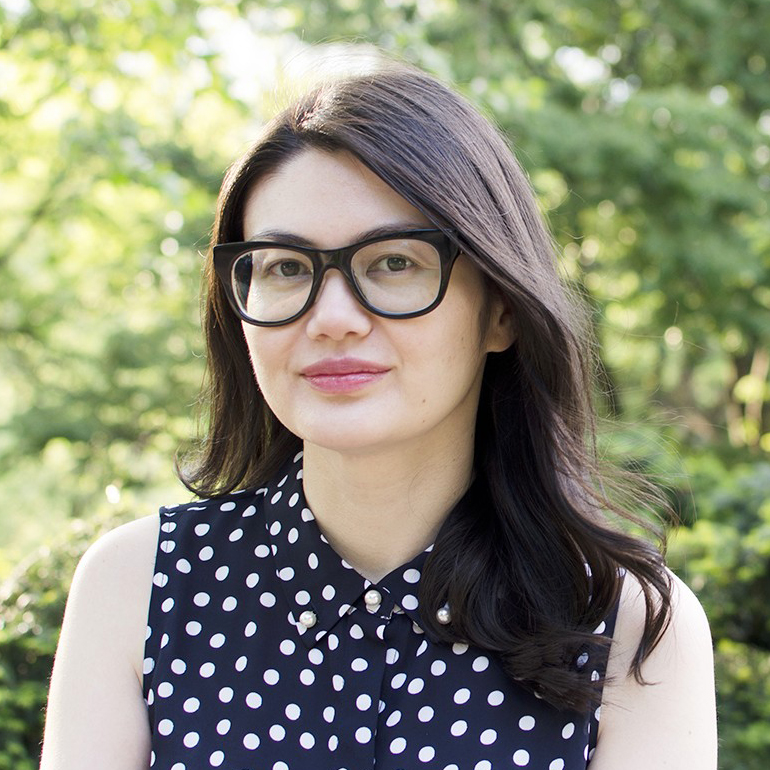Thank you to Lara for sharing her EoE story and the challenges to reach a diagnosis. If you would like to learn more about Lara, be sure to follow her on Instagram (@epinepherywhere).
Lara’s EoE Story
My name is Lara, I’m 27 years old and from Washington, D.C. I’ve lived with life-threatening allergies for my entire life and also have several allergic conditions, including EoE. While sometimes this can feel like a lot to deal with, I do my best to take it in stride and not let it get in the way of my life. Things I still love to do despite my allergies and chronic conditions: traveling, exploring D.C. and eating way more sweets than a normal person should be able to!
When were you diagnosed with EoE?
I was first diagnosed with EoE when I was 23. I had never heard of EoE and had no idea what it meant for me day-to-day or long-term. At the time of my diagnosis, I wasn’t experiencing the typical symptoms of EoE, such as difficulty swallowing or chest pain. While it wasn’t great news to get a new and unexplained diagnosis, the fact that I wasn’t symptomatic at the time let me ignore my diagnosis for those first few years. I adopted an ignorance is bliss attitude and chose not to think too much of it. This of course changed as time went on and I eventually developed symptoms and needed treatment.
How long did it take to receive a diagnosis?
During university I became very sick. I developed symptoms such as extreme fatigue, loss of appetite, brain fog, etc. These symptoms lasted for months and no doctor could find a reasonable explanation for what was causing this. I saw infectious disease doctors, rheumatologists, hematologists – you name the specialty and I probably saw the doctor. Eventually, the only indicator of anything wrong was an extremely high level of eosinophils in my blood. My doctors had never seen a number that high (I’ve always been an overachiever!).
Shortly after the doctors discovered my unusual blood count, the unexplained symptoms I had been experiencing disappeared, so I wasn’t too concerned with why I had so many eosinophils swimming around in my veins and just went on with my life. During this time I continued to see doctors and they kept telling me I had higher and higher levels of eosinophils in my blood.
I eventually had an allergist who suggested that I get an endoscopy as she thought the eosinophils in my blood could be indicative of EoE. When I talked to my gastroenterologist about performing an endoscopy, he was very hesitant, as he felt that the risks of the procedure outweighed the chances that I actually had EoE. I remember telling him that if there was even a 1% chance I had EoE that I wanted to go through with the procedure. He told me there was 1% of a 1% chance that I had EoE. Then, go figure, I was that 1% of a 1%! After that first endoscopy I was finally diagnosed.
At the time of my initial diagnosis, I wasn’t experiencing your typical EoE symptoms, but in the years since this has changed. Now that I have developed symptoms, my life has been a balancing act of trying to find the right medication that works for me that also doesn’t cause side effects that outweigh the benefits. Before I started this EoE journey, I used to think that when you get sick, a doctor prescribes medication and then you get better. I’ve since learned that diagnoses aren’t linear and it’s a constant battle of changing symptoms, changing medications, and for me, lots of endoscopies.
Can you describe your medical team for EoE and how they help you through the process?
To get my initial diagnosis I saw so many doctors. It felt like they just passed me back and forth like a football until the ref finally stepped in, grabbed the ball and said “Hey, I think it’s EoE!”. Now that I have a diagnosis I work closely with my allergist and gastroenterologist. Since EoE is an allergic condition of the esophagus, I’ve found that the combined care of these two specialties has worked the best for me. They work closely together, bouncing ideas and expertise off each other to give me the best quality of care.
Can you describe your approach to balancing life-threatening allergies to peanuts and treenuts with EoE?
The majority of individuals with EoE have certain foods that cause their EoE symptoms to worsen, so a diagnosis can also result in extensive food restrictions. My doctors believe that my EoE is genetic rather than the result of ingesting allergens, so as of now I haven’t had to limit any additional foods with my diagnosis. That being said, I’m not sure I believe that this is the case. While my diet is still varied at this point, I am in the early stages of figuring out my EoE, and think that additional food restrictions could be very possible in the future.
I’ve had my anaphylactic allergies for so long that managing them is second nature at this point. While I’m comfortable in managing my allergies, when I was first diagnosed with EoE, it felt like this new big scary thing I didn’t understand that I now had to deal with on top of my allergies. While I didn’t welcome my EoE diagnosis with open arms, I eventually came to terms with it as another aspect of my health that I have to manage.
Can you share what challenges EoE brings to your life, especially as an adult?
Because I haven’t had to further limit my diet, I haven’t found too many social challenges that go along with my EoE. For me, the biggest challenge by far is the medication. I’m currently on a liquid medication that I have to take day and night, that needs to be refrigerated constantly, that I can only get in a two week supply – plus, it is not covered by my insurance so it’s very expensive.
I love to travel and while I haven’t been able to travel far recently due to the pandemic, I’m already envisioning the difficulties that will come along with travel and medication management when I can’t get more than 6 feet from a 2 week supply of refrigerated medication. I also have been trying to move abroad for the last few years and managing my EoE has created an added layer of complication in that process. I’ve been doing extensive research and making many overseas phone calls to try and find out if I can get the medication I need outside of the United States. While this is challenging to navigate, I’m hopeful that I can find a creative solution.
What have you learned living with a rare disease?
I’ve learned that you really have to advocate for yourself and for your care. Doctors aren’t miraculous and can’t snap their fingers and figure out a difficult diagnosis and then immediately provide effective treatment. You need to be able to voice your symptoms, what tests you want done, and what medications you want to be on.
Being your own healthcare advocate is so important, especially with a rare condition. You also need to find healthcare professionals who will listen to you. Doctors are always looking for the most obvious diagnosis, so if you don’t fit that mold, oftentimes they will write you off. You have to search and find a healthcare provider who listens and will work to find a diagnosis and the most effective treatment for you.
What would you tell someone newly diagnosed with EoE?
I would tell a newly diagnosed individual to find a community of people that understands what they’re going through. When I was first diagnosed, I had absolutely no idea what it meant for me, and honestly my doctors didn’t know either, so I felt like I was left with no information. Finding a community of people online who also have this rare condition has been helpful and made me feel much less isolated. Also, funnily enough, one of my best friend’s boyfriends also has EoE. We found out about each other’s diagnoses by chance and now we complain about our medications to each other and compare notes from our doctor’s appointments!
Have you discovered anything new about yourself living with EoE?
I’ve learned that I’m resilient. I’ve had life-threatening food allergies on top of other medical issues for my entire life, so it was initially really daunting to receive yet another diagnosis. But eventually I learned that I can not only handle it, but that I can make the best of it. It’s another part of my journey and that’s okay.




